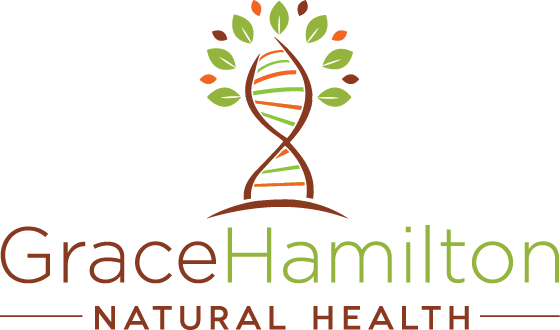Natural Treatments for Non-alcoholic Fatty Liver Disease (NAFLD)
Non-alcoholic Fatty Liver Disease (NAFLD) is a condition where excess fat accumulates in the liver of people who drink little or no alcohol. NAFLD is becoming increasingly common, affecting approximately 20-30% of the global population. If left untreated, it can lead to more serious health problems such as liver inflammation (steatohepatitis), fibrosis, cirrhosis, and even liver cancer.
The exact cause of NAFLD is not fully understood, but it is believed to be linked to insulin resistance, obesity, and a sedentary lifestyle. This is why maintaining a healthy weight, engaging in regular physical activity, and following a balanced diet are essential for managing and preventing NAFLD.
In addition to lifestyle changes, there are also a number of natural treatments for NAFLD that have been found to be effective, including herbs, nutrients, and supplements. Here are some of the most commonly used natural treatments for NAFLD:
Herbs:
Milk Thistle: Milk thistle is a popular herb used to support liver health. It contains silymarin, an antioxidant that helps to protect the liver from damage.
Dandelion: Dandelion is a liver-supporting herb that has been traditionally used to treat liver problems. It stimulates the production of bile, which helps to flush out toxins from the liver.
Turmeric: Turmeric has powerful anti-inflammatory and antioxidant properties that make it a great choice for those with NAFLD.
Garlic: Studies have shown that consuming garlic can help to reduce the accumulation of fat in the liver and improve insulin sensitivity in people with NAFLD. This is believed to be due to the presence of compounds in garlic, such as allicin, which have anti-inflammatory and antioxidant properties.
Rosemary, Peppermint, Basil, Lavender, Oregano, and Sage contain ursolic acid and carnosic acid which help prevent lipotoxicity (when there is when there is too much fat in the body, causing harm) and improving lipid homeostasis, keeping the right balance of fat in the body for good health
Gingko Biloba contains compounds such as ginkgolides and bilobalides, which have antioxidant and anti-inflammatory properties that can regulate fatty acid metabolism in the liver and reduce fat accumulation.
Ginseng can help to improve levels of liver enzymes and reduce hepatic inflammation and fibrosis.
Foods and Nutrients:
Coffee: Studies have shown that drinking coffee can help to reduce the accumulation of fat in the liver, improve insulin sensitivity, and reduce inflammation in people with NAFLD. This is believed to be due to the presence of compounds in coffee such as caffeine and chlorogenic acid, which have been shown to have beneficial effects on metabolism and liver function.
Tea: Similarly, tea, particularly green tea, has also been shown to have potential benefits for people with NAFLD. Green tea contains catechins, which are potent antioxidants that help to protect the liver from oxidative damage. It also has anti-inflammatory effects and has been shown to improve insulin sensitivity in some studies.
Vitamin E: Vitamin E is an important antioxidant that helps to protect the liver from oxidative damage. Foods high in Vitamin E include almonds, sunflower seeds, and spinach.
Omega-3 Fatty Acids: Omega-3 fatty acids can help to reduce inflammation and improve insulin sensitivity, making them a valuable nutrient for those with NAFLD. Foods high in Omega-3s include salmon, flaxseeds, and walnuts.
Resveratrol: Resveratrol is a natural compound found in red wine, grapes, and some other plants. Studies have shown that resveratrol can help to reduce the accumulation of fat in the liver, improve insulin sensitivity, and reduce inflammation in people with NAFLD. It is thought to work by activating the Sirtuin 1 (SIRT1) gene, which is involved in regulating energy metabolism and cellular stress.
Resveratrol has also been shown to have antioxidant properties, which help to protect the liver from oxidative damage. This is particularly important for those with NAFLD, as oxidative stress is believed to play a role in the development of the condition.
Supplements
Probiotics: Probiotics can help to improve gut health and support liver function. They can also reduce inflammation and improve insulin sensitivity.
N-Acetyl Cysteine (NAC): NAC is a powerful antioxidant that helps to protect the liver from damage. It is also a precursor to glutathione, a compound that helps to flush out toxins from the liver.
Alpha-Lipoic Acid (ALA): ALA is another antioxidant that helps to protect the liver from damage. It is also thought to improve insulin sensitivity.
It is important to note that while these natural treatments can be effective in managing NAFLD, they should not be used as a substitute for making lifestyle changes. Eating a balanced diet, maintaining a healthy weight, and engaging in regular physical activity should always be the foundation of any treatment plan for NAFLD.
NAFLD can lead to serious health problems if left untreated. Making lifestyle changes and incorporating natural treatments, such as herbs, nutrients, and supplements, can help to manage and prevent NAFLD. If you want some guidance on how to improve your liver health, check out my Love Your Liver cookbook and meal plan.



